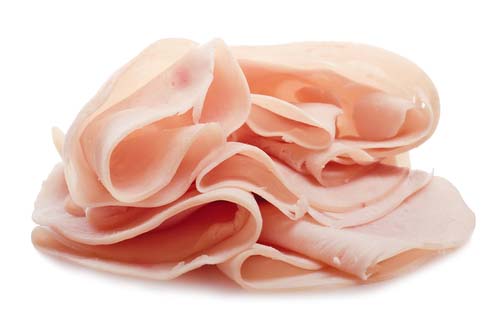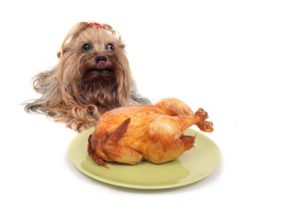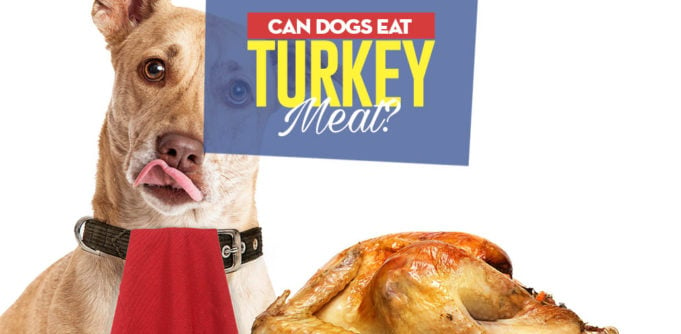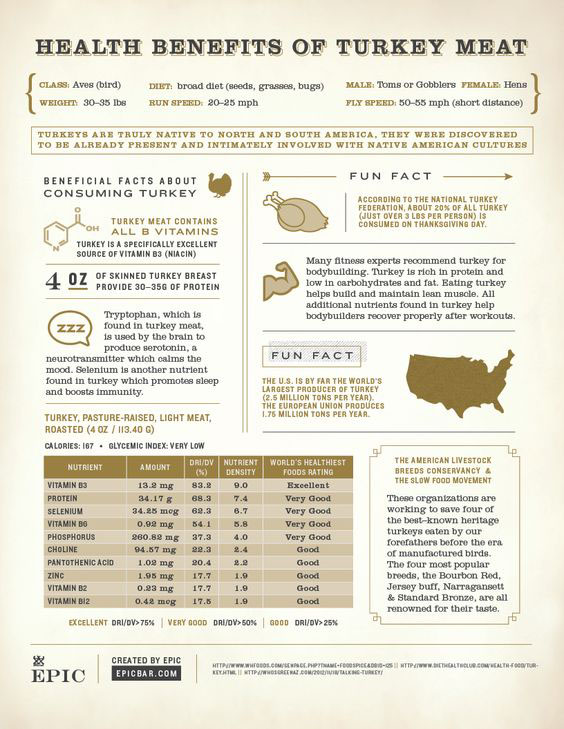Turkey is a lean, low-fat meat that is most often consumed by people during Thanksgiving dinners but is also a favorite ground turkey option and luncheon sandwich meat as well. This meat is full of essential vitamins and minerals but contains far fewer calories and fat than other traditional meats. But can dogs eat turkey meat just as we can, or is turkey bad for dogs?
If you've been wondering, “can I give my dog turkey,” the answer is YES – dogs can eat turkey, it's not toxic to them and is in fact a very healthy and nutritious food option. There are several benefits dogs can reap from consuming this low calorie meat.
In this article we'll discuss turkey meat in more detail, can dogs eat turkey and how should you prepare it, and is turkey bad for dogs in any way.
ALSO READ: Can Dogs Eat Bologna Meat?
What is turkey?
Turkey is a mostly white meat that is leaner than red meats, and which is most often associated with and frequently consumed around the Thanksgiving holidays.
Many people turn to turkey not only for its low fat and low calorie content but also because of the myriad of minerals and vitamins it contains, many of which assist in providing lean protein as well as possibly preventing illnesses like diabetes and cancer.
This is what deli turkey meat looks like:

It’s important to note that only the white meat portion of turkey is lean and low-calorie. Any turkey meat that includes dark meat is just as high in fat and calories as any other kind of dark meat. But can dogs eat turkey and which type is good for them? Is turkey bad for dogs in some circumstances and when should it be avoided?
RELATED: 15 Ways to Make Sure Your Dog Gets Enough Good Quality Meat
Turkey for Dogs 101
Can Dogs Eat Turkey?
 So can dogs eat turkey meat just as we can? Yes, absolutely – your dog can eat turkey as this meat on its own is non-toxic and nutritious. However, the only turkey given to dogs should be well-cooked or in appropriately raw form (vacuum-sealed, commercially sold) without any additives like sodium or preservatives.
So can dogs eat turkey meat just as we can? Yes, absolutely – your dog can eat turkey as this meat on its own is non-toxic and nutritious. However, the only turkey given to dogs should be well-cooked or in appropriately raw form (vacuum-sealed, commercially sold) without any additives like sodium or preservatives.
Feeding turkey to a dog must be done with care. Often, store bought turkey is combined with other foods or spices that can be toxic to a dog, so any turkey fed to a canine must be thoroughly cooked and plain. Otherwise, serious health complications may occur.
Turkey has been well-studied in human trials, and white turkey meat is one of the healthiest meat options out there, a lot of which comes down to its very high protein to carb to fat ratio. Here are a few proven facts we know about it:
- Turkey helps to stay fuller longer and preserves muscle mass (1, 2, 3)
- Turkey is high many vital nutrients, minerals and vitamins (4)
- Turkey can help with weight loss (5, 6, 7)
- Turkey is one of the healthiest poultry meats to consume (8)
Turkey meat isn't as popular as other poultry meats or red meats, and it hasn't been studied well in dogs. One study with canines, however, found that it's one of the least to be contaminated meats for dogs to consume in the United States (Workman et al. 2005). But can dogs eat turkey at all times, or are there any precautions? Is turkey bad for dogs in some circumstance?
5 Benefits of Turkey for Dogs
 1. White turkey meat is very high in lean protein.
1. White turkey meat is very high in lean protein.
Protein is necessary for a variety of significant body functions, and white turkey meat provides it in high amounts. In dogs, protein is needed for all components of development and growth throughout a canine’s lifespan.
Protein is burned as calories and may also be converted and stored as fat molecules. It is also a critical player in the development and health of the immune system.
2. Turkey contains significant portions of riboflavin.
Riboflavin, also known as Vitamin B2, is part of a series of Vitamin B-complexes. Vitamin B2 is a water-soluble vitamin which, along with Vitamin B1 and B3, plays a major role in the production of energy in cells.
Enough riboflavin needs to be in a dog’s diet to prevent bladder stone formation.
3. Phosphorous in turkey helps with multiple key body functions in dogs.
Phosphorous promotes a normally functioning and regulated metabolism and has a vital role in membrane integrity. Combined with calcium, phosphorous helps to develop solid bone structures, like teeth, and turkey provides a decent amount of this mineral to make it beneficial to dogs’ health.
4. White turkey meat is a moderate source of omega-3 fatty acids.
Dogs need omega-3 fatty acids for certain healthy body processes to happen. As functional fats that a dog cannot produce on its own, omega-3 fatty acids help manage allergies and sensitive immune systems, strengthen eyesight, and regulate blood-clotting within the body.
Omega-3 fatty acids also help prevent or manage diseases and illnesses like cancer, cardiovascular disease, cognitive function, and osteoarthritis. While you can get the most from feeding fish oil supplements, natural meats like turkey may be a better option.
5. Turkey offers selenium, a mineral for sharp minds and healthy bodies.
Selenium is an essential mineral in a dog’s diet. It contributes to building and securing a strong, stable immune system, which contributes to the overall well-being of the canine. This mineral also boosts cognitive function, helping dogs stay sharp and fight an early aging process.
Selenium is also beneficial for dog's DNA synthesis, thyroid hormone metabolism, and protecting against oxidative damage which often leads to the development of cancer.
So can dogs eat have turkey then?
Yes, absolutely – dogs can eat turkey and it's safe for them, provided it's plain turkey and/or cooked well. Store bought turkey meat may contain a variety of spices, salt and other additives which can be harmful to dogs, so make sure you know exactly the type of turkey you're giving your dog.
RELATED: Can Dogs Eat Pizza?
3 Potential Side Effects of Turkey
 Is turkey bad for dogs in some ways, and when should it be avoided? Although turkey for dogs generally safe as long as it is well-cooked, there are some other forms and combinations with turkey meat that can cause your dog serious health issues.
Is turkey bad for dogs in some ways, and when should it be avoided? Although turkey for dogs generally safe as long as it is well-cooked, there are some other forms and combinations with turkey meat that can cause your dog serious health issues.
1. Raw turkey may cause salmonella poisoning.
Raw meat like turkey shouldn’t be fed to dogs unless done so by a professional or via specially devised and packaged fresh commercial food companies. Unfortunately, feeding a dog raw turkey in general can expose your dog to salmonella, a zoonotic bacteria transferable from animals to people that can result in violent sickness and abdominal pain.
2. Deli and frozen meat turkey are full of unhealthy additives.
Dogs should not be fed too many slices of turkey deli meat. This processed variety of turkey is often filled with high levels of sodium, spices, and preservatives that are not healthy for your dog.
Pre-packaged frozen turkey burgers or meals are also dangerous because of the same concerns: too much added salt, sugar, and other additives. Over time, a dog fed these kinds of turkey may develop salt toxicity, which can result in death.
3. Watch out for turkey paired with garlic and onions.
Too often, especially for dinners and holiday celebrations, turkey is cooked in combination with a variety of other spices, vegetables, and flavorings. Turkey that is combined with onions and garlic can be deadly to dogs.
Onions contain N-propyl disulfide, which is toxic to dogs as it causes the red blood cells to break down, resulting in anemia. Only a small amount of onion is necessary for this danger to occur.
Garlic is also toxic to dogs, but it will need to be consumed in large quantities to impact a canine’s health. Similar to onions, garlic toxicity affects the red blood cells and cardiovascular function, and should be avoided at all costs.
Summary
Can Dogs Eat Turkey?
 So can dogs eat turkey safely then? Yes, white turkey meat is completely safe and even very nutritious for dogs to consume. However, they should only eat white turkey meat that has been thoroughly cooked and is plain. In that form, turkey can be a lean, healthy source of protein and a nutritious addition to a dog’s diet.
So can dogs eat turkey safely then? Yes, white turkey meat is completely safe and even very nutritious for dogs to consume. However, they should only eat white turkey meat that has been thoroughly cooked and is plain. In that form, turkey can be a lean, healthy source of protein and a nutritious addition to a dog’s diet.
Is turkey bad for dogs in any way, shape or form? There are instances where your choice of turkey meat may not be good for dogs to eat. Meats with spices and additives can be harmful to dogs, and particularly so if those are toxic vegetables like garlic or onion.














